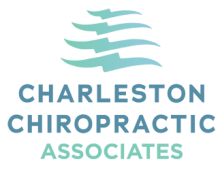Sciatica is a condition characterized by numbness, inflammation, and pain radiating along the sciatic nerve. The nerve goes from the lower back to the hips and buttocks and down to the legs. Sciatica pain usually affects one side of the body, occurring following the compression of a section of the nerve.

Sciatica may vary from mild to excruciating pain, but in most cases, surgery is not the only solution. If the pain is mild, home remedies can resolve the issue. It is helpful to find out the best treatments for sciatica.
Using Medications
If sciatica fails to resolve with homecare remedies, the doctor may recommend medical treatment. It is possible to treat the condition using several medications. They include muscle relaxants, anti-inflammatories, tricyclic antidepressants, anti-seizure medications, and narcotics.
The doctor will recommend the best medication depending on the root cause of the pain and underlying health conditions. Avoid using OTC medications for long without consulting your doctor.
Physical Therapy
A physical therapist can help treat sciatica using an individualized program. Therapy is rehabilitative, and it typically begins after the pain subsides. A physical therapist will develop a rehabilitation program to help patients avoid future injuries.
The program usually involves stretching and an exercise routine to take pressure off the nerve. It helps strengthen the supporting muscles, correct the posture, and improve flexibility.
Steroid Injections
If you experience frequent sciatic pain, your health practitioner may recommend steroid injections. Corticosteroid medication is injected around the nerve root. The injections help reduce pain as they suppress inflammation around the nerve.
The effects of the treatment usually last a few months. Doctors limit the number of injections that patients can get to avoid serious side effects. The risks increase when injections are administered too frequently.
Chiropractic Care
Chiropractors can help treat sciatica using safe and effective techniques. They use spinal adjustments or manipulation to remove the restriction causing the pain. It helps treat spinal mobility.
Chiropractic treatment reduces pain, improves function, and restores movement. The best thing about chiropractic care is that it is non-invasive. You do not have to worry about the harmful side effects of drugs or steroid injections.
Surgical Treatment
When other treatments fail to work, the doctor may recommend surgery. This option is a last resort, recommended when the compressed nerve causes weakness and other serious issues. Patients who experience loss of bladder and bowel control can benefit from surgery.
The surgical option helps when the condition fails to improve with other treatments and the pain is worsening. The surgeons remove the portion that is pressing on the affected nerve.
It is advisable to choose nonsurgical options to treat sciatica. These include:
Using cold and hot packs
Stretching
Resting
Getting regular chiropractic care can help reduce lower back pain and its long-term benefits.
For more on the best treatments for sciatica, call Charleston Chiropractic Associates at (843) 225-4357 to reach our office in Charleston, South Carolina.
QUICK LINKS
Quick Links
HELPFUL ARTICLES
Services
General
Health
Conditions
- Corrective Exercises
- Chiropractic Care for Kids
- Chiropractic Senior Care
- Acupuncture
- Holistic Treatments
- Chiropractic Care for Ear Infections
- Work Related Injuries
- Physiotherapy Treatments
- Therapeutic Adjustments
- Cranial Facial Release
- Spinal & Postural Screenings
- Massage Therapy
- Chiropractic Adjustments
- Chiropractic FAQ’s
- Common Myths About Chiropractic Care
- What to Expect at Your First Chiropractic Visit
- Choosing the Right Chiropractor for You
- Candidates for Chiropractic Care
- Methods of Chiropractic Care
- The Importance of Regular Chiropractic Visits
- Chiropractic Care – Overview
- Benefits of Chiropractic Care
